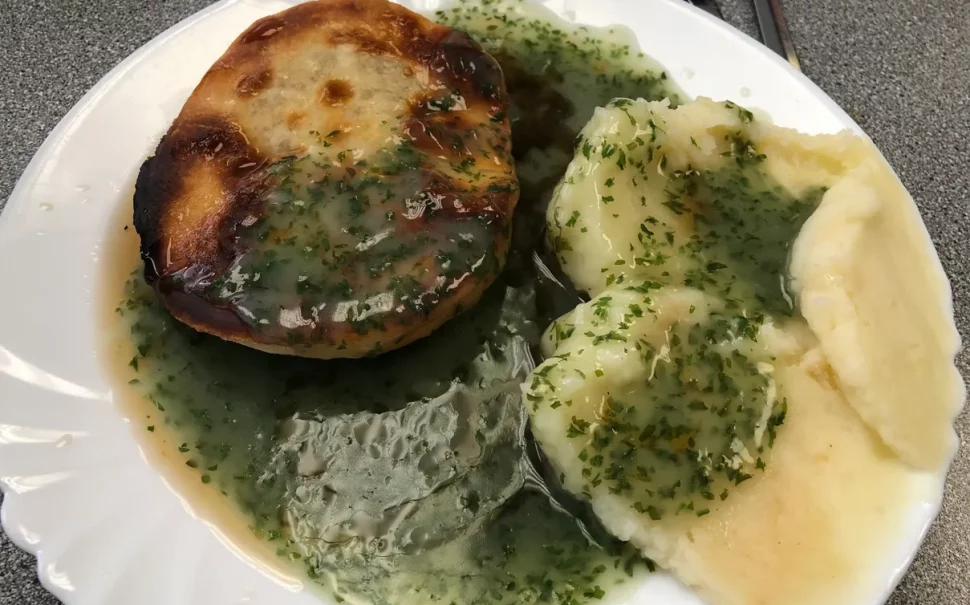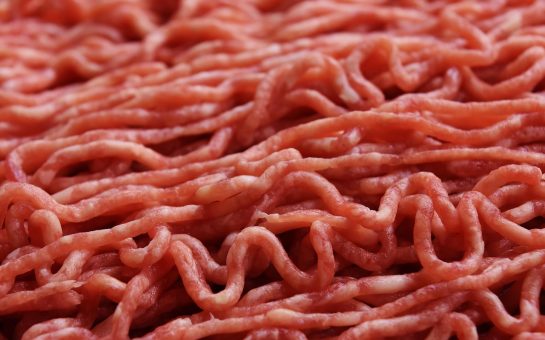Pie ‘n’ Mash Week celebrated East End traditions and urged the government to protect the iconic London dish.
The event, held between 10-16 March, aimed to bring a spotlight to the East London staple, encouraging both newcomers and long-time enjoyers to support the local businesses that serve up the dish.
The week is part of the Modern Cockney Festival, a month-long celebration that hopes to protect the unique East End identity from extinction, offering events such as rhyming slang workshops and poetry evenings.
Andy Green, co-founder of the festival, said: “There’s a tremendous heritage and sense of identity to being a Cockney.”
“We need to celebrate it, invest in it, nurture and grow it, rather than let it wither away.
“Pie and mash is a symbol of Cockney identity. The prevailing media narrative of the dish is that it is going, but the reality is that it’s evolving.
“Some high-profile shops have shut, with owners retiring or leases running out, but new shops are opening, particularly in places outside of London – that is evolution,” he said.
As part of its mission to preserve Cockney heritage, the festival is also advocating for pie and mash to receive protected status from the Department for Environment, Food and Rural Affairs, which has been approved for other iconic British dishes such as the Bramley apple pie and the Cornish pasty.
Pie and mash shops originated in East London during the 19th century, and quickly became an essential part of the Cockney identity.
The first said to be opened was by Henry Blanchard in 1844, described as an eel pie house in Southwark.
For the working-class communities of dockers and labourers who sat in these shops together, it was an affordable and nourishing meal that reflected the resilience and companionship of the East End.
Traditional pie and mash consists of minced beef pie, mashed potatoes and generous lashings of liquor, a parsley sauce that gives the dish its signature flavour.
The infamous jellied eels, once a Thames staple, often accompanied the meal and despite the decline in their popularity, remains a renowned part of Cockney culinary heritage.
The emergence of chilli vinegar and white pepper in the early 20th century showed a shift in the Cockney palette and now sits on the tabletops of most pie and mash shops today.
With many Cockneys and their descendants now dispersed in areas such as Essex and Kent, pie and mash shops have adapted to deliver the food of their heritage to them.
One such shop is Maureen’s, located in Poplar, where punters can order up to 16 portions of their favourite dish from anywhere in the country.
Stephen Manning, who runs the delivery service at Maureen’s said: “A lot of our customer base has moved away, so if they can’t come to us, we’ll go to them.”
“The customers make our job easy because the demand is there, we’re constantly busy.
“If you go into a pie and mash shop and it’s your local, you all know each other.
“You sit there, you can have a chat, you know the girls behind the counter and more often than not, the chefs too.
“Going to a pie and mash shop is no different to going down to your local pub, it’s community,” he said.
Social media is another tool used to spread awareness of the dish beyond boroughs and borders.
Cockney and Caribbean is a TikTok account with almost 32,000 followers run by an East End couple, Danny and Carlene Sains, and has been instrumental in raising awareness for Pie ‘N’ Mash Week.

The couple ran a series on their account called the Pie and Mash Pilgrimage, where they tried out a different pie shop for each day of the week.
Danny, a former pie shop owner, said: “It was important for us to show these pie and mash shops because I know how difficult running one can be – I lost mine.”
“These shops need as much press and support as possible, so we started doing the videos, not to review them, but to get them out there.
“I believe in pie, mash and liquor, it takes me back to my childhood, it’s part of our heritage and growing up,” he said.
Carlene, who had the idea to start the account, said: “The response when we do pie and mash videos is generally quite good.”
“It gets people talking, they remember their favourite shops, what they ate, who they went there with and whether they flip their pies or not.
“Going to these shops, we’ve met some great people along the way and we’ve loved this pilgrimage,” she said.
Pie ‘n’ Mash Week may be over, but whether it’s shared in a shop, delivered to a doorstep or celebrated online, the iconic dish is still bringing people together and keeping Cockney heritage alive one plate at a time.
Feature picture credit: Stephen Manning





Join the discussion